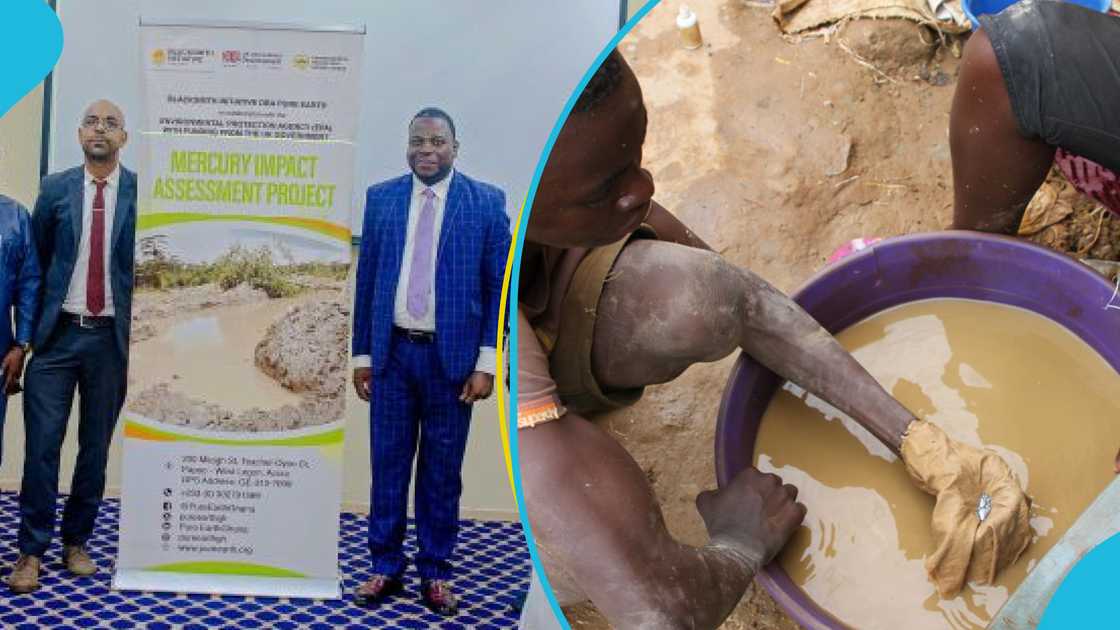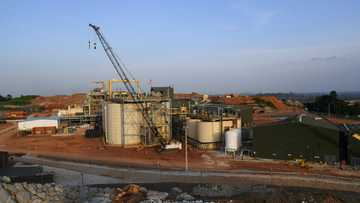Pure Earth Ghana Begins Study Into Mercury Pollution In The Country As Part Of UK-Funded Project
- Pure Earth Ghana has launched a study to assess the extent of mercury contamination in Ghana
- The assessment project will span 12 months and take place in the Eastern, Western, Ashanti, and Savannah Regions
- Pure Earth Ghana will collaborate with the Environmental Protection Agency (EPA) on this project
Don't miss out! Get your daily dose of sports news straight to your phone. Join YEN's Sports News channel on WhatsApp now!
Environmentalist organisation Pure Earth Ghana has launched a study to assess mercury contamination in parts of Ghana.
The project team will work for 12 months in the Eastern, Western, Ashanti, and Savannah Regions.

Source: Getty Images
Pure Earth will collaborate with the Environmental Protection Agency (EPA) on this project, which is supported by the UK government through the Environmental Fund (TEF).
The research will seek to map and analyse the interaction between mercury pollution and agriculture. The environmental NGO has consistently called for action to combat mercury and lead pollution.
In the past, Pure Earth has raised concerns about the famous metal pot known as dadesɛn and its links to lead poisoning.
Benefits of the mercury assessment
The project is poised to endow the Ghana EPA with advanced methodologies, such as using X-ray Fluorescence (XRF) for accurate, efficient assessments, bolstering their capacity to monitor and mitigate mercury pollution independently.
The organisation aims to ensure public health is at the forefront of our mineral development policies.
The project team will assess food crops, water bodies, and fish to evaluate the extent of environmental mercury contamination.
Research indicates that artisanal small-scale gold mining is estimated to be the largest source of mercury emissions in Ghana, at 52%.
At the programme launch, the EPA representative reiterated the devastating surface water pollution from illegal mining.
Research also indicates that mercury in some major water bodies in Ghana has left them unsafe for use.
During the study’s launch, the country director of Pure Earth Ghana, Rev. Dr. Esmond Quansah, also reiterated that mining, while it fuels livelihoods, poses significant risks through mercury emissions that threaten both health and habitat.
He further underscored the need for the research to eventually inform some policy action.
“It embodies a commitment to the communities of Ghana that we will strive not only to understand but also to remedy the impacts of mercury pollution.”
Quansah told YEN.com.gh that the collaboration with the EPA offers long-term promise for policy action.
“The good thing about the project is we are working with EPA. The EPA is a co-implementor of this project.
“We believe that once we do a good job, the policymakers will take immediate action to address the issues.”
Video shows alarming birth defects in infants
YEN.com.gh reported that the effects of illegal mining in parts of Ghana was documented in a new report.
A Joy News documentary detailed how children suffer from kidney problems due to the hazardous chemicals used for illegal mining, which seep into their food and water.
According to the report, some infants are also born with more than five fingers and limbs forming on their chest.

Read also
Police seize 17 boxes of gold bars at Kotoka International Airport, NDC man fingered in chaos
Proofread by Edwina N.K Quarcoo, journalist and copy editor at YEN.com.gh.
Source: YEN.com.gh



